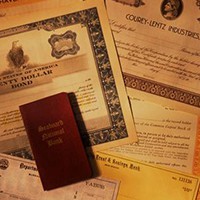Evelyn Jacks: Report Your Foreign Holdings

Canadians with foreign holdings at any time in 2013 (not just at the end of the year), will need to provide more information to the CRA, starting with the 2013 tax year.
This will include money on deposit in foreign bank accounts and marketable securities, which are considered to be specified foreign properties. Problem is, many Canadian tax filers miss ticking off the box on the tax return that requests information on holdings over $100,000.
More details on “specified foreign property holdings”, will be required on Form T1135, foreign Income Verification Statement. Taxpayers will be required to provide for each property held:
-
The name of the foreign institution or other entity holding the funds outside of Canada
-
What country the funds are held in
-
What foreign income was generated from the property
The March 21, 2013 budget also proposes to extend the reassessment period for a taxation year of a taxpayer by three years if the taxpayer failed to report income from a specified foreign property in their annual return and Form T1135 was not filed on time, or if a specified foreign property was either improperly identified or not identified at all.
So what is included in the definition of specified foreign holdings, subject to these rules and listed on Form T1135? Take special note of the following:
-
Patents, copyrights and trademarks held outside Canada
-
Funds in foreign bank accounts
-
Shares of Canadian corporations on deposit with a foreign broker
-
Shares of non-resident corporations held by the Canadian resident filer or on deposition with a Canadian or a foreign broker
-
Land and buildings located outside Canada, such as a foreign rental property
-
Precious metals, gold certificates and futures held outside Canada
-
Interests in mutual funds that are organized in a foreign jurisdiction
-
Debts owed by non-resident persons, such as government or corporate bonds, debentures, mortgages, and notes receivable
-
Property that is convertible or that can be exchanged for a right to acquire specified foreign property
-
Certain interests in non-resident trusts and partnerships
Here are some of the holdings excluded from these reporting rules:
-
Properties used or held exclusively in the course of carrying on an active business
-
Personal use property such as a vacation property held primarily as a personal residence, jewellery, art, or other listed personal properties
-
Trusts governed by an RRSP
-
An interest in an IRA (Individual Retirement Account)
-
Shares of capital stock or indebtedness of a non-resident corporation that is a foreign affiliate
-
An interest in a non-resident trust principally providing superannuation, pension, retirement, or employee benefits to non-resident beneficiaries that do not pay income tax in the jurisdiction where the trust is resident
IT’S YOUR MONEY. YOUR LIFE. Make it your business to understand the taxation of your cross-border transactions. Willful blindness – no matter how innocent – will not cut it when the CRA starts handing out fines for failure to report offshore investments. Tax and financial advisors can also expect to be held accountable in asking the question on the tax return: Did you own specified foreign property in excess of $100,000 during the year?